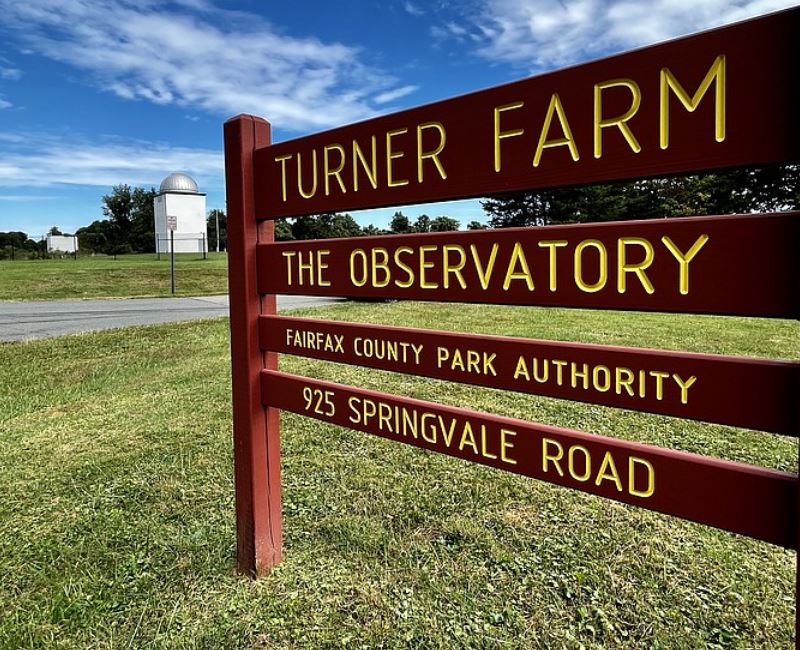 Photo from Great Falls Connection
|
From the Great Falls Connection, Monday Oct 17,2022 (http://www.greatfallsconnection.com/news/2022/sep/28/proposal-dark-sky-preserve/) is a front page article of the Dark Sky Preserve proposed to encompass Turner Farm, Observatory Park:
"According to Supervisor John W. Foust (D-Dranesville), the Fairfax County Board of Supervisors revised the county-wide lighting standards in 2020 to better address glare and light pollution. Per Va. Code 15.2-920, the Board approved a follow-on motion that directed staff to research and analyze zoning rules to protect dark skies around astronomical facilities." Correction: The results of the survey that the County did are included as Attachment 1: Zoning Ordinance Amendment - Outdoor Lighting Dark Skies around Turner Farm Park Observatory Preliminary Concepts (fairfaxcounty.gov). Question 3 asks whether they would support additional limitations on lighting within ½ mile around the observatory, and 50% said no, 41% said yes, and 9% said, I don’t know.
Maintaining dark skies in this area is vitally important. "Jeffrey Kretsch of the Analemma Society said that people come to Observatory Park for the hands-on experience of observing and classes. The park has seen over 7,500 visitors in the last four years, according to Kretsch."
"Tammy Schwab, the Park Authority's manager for education and outreach, said that they are increasing the efforts county-wide in support of dark skies. Schwab explained how the county is "walking the walk" and doing its part to support dark skies. The Park Authority is in the process of switching to amber-colored lights (not orange) for the outdoor ballasts at the Observatory. Evidence shows that lighting with amber reduces light pollution and is a safer, viewer-friendly environment than white lights with their disability glare and a reduction in visibility. She added that the county applied to the International Dark-Sky Association to designate the area around the observatory as an Urban Night Sky Place." We encourage all regardless of location to minimize outside lighting, not only for dark sky observing, but for the preservation of wildlife and bird migration that are severely affected by increased urban lighting.

